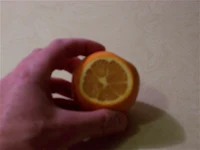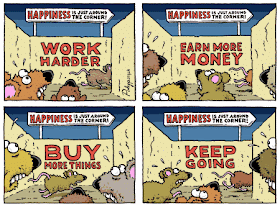Author and simple living advocate Jim Merkel has been living on $10,000 a year since 2005. Before that he lived on $5000 dollars per year for 16 years. Through his writing and activism, he is inviting us to be radical - to think about all of humanity, and nature, and what our fair share is. He is inviting us to live simply as a logical and enjoyable response to living on a finite planet.
When people think of 'radical simplicity' they may think of living without cable, or one car instead of two. In our increasingly complicated world, any effort toward simplicity seems radical. And no personal action is too insignificant to make.
The form of simplicity Jim Merkel proposes, however, in Radical Simplicity: Small Footprints on a Finite Earth, is what most would consider truly drastic or extreme. But it is probably the only thing that will save us. He thinks we should all learn to live on our fair share.
Merkel is an ex-engineer, so the processes he outlines in his book are as exacting as he could get them. He shows through a variety of means, including his own life, how we can live better, more sustainable lives, and how we can measure our progress along the way. I found some of the methods exhausting, however.
For example, I am not going to weigh everything I own to calculate my ecological footprint. I am satisfied with estimating where I am at. But if you are looking for a more regimented, scientific approach to a simple living make-over, this would be the book to read.
Merkel uses three main tools to guide the reader. Along the way he gives many justified reasons as to why we may want to pursue these goals which will be difficult - but worthy - to achieve. The scaffolding of the book is basically:
- Your Money or Your Life - Concepts from this classic book, by Joe Dominguez and Vicki Robin, are used to show how to get out of debt, save money, and come to terms with your work and values.
- Ideas from Mathis Wackernagel and Bill Rees, regarding Ecological Footprint. Readers can measure how much nature is needed to supply all they consume, and absorb their waste.
- Spending time alone in nature. The book encourages readers to consider another reality with humans as only one species among many in a system where everything is connected, and diversity is the key. Having forgotten where we come from, reconnecting with nature allows us to heal. It allows us to value and respect the planet's gifts.
Merkel writes, "Imagine you are first in line at a potluck buffet. The spread includes not just food and water, but all the materials needed for shelter, clothing, health care, and education. How do you know how much to take? How much is enough to leave for your neighbors behind you -- not just the six billion people, but the wildlife, and the as-yet-unborn?"
By our own accounts we are taking too much. We are not leaving enough behind for those who will follow us. Too often we are butting into the buffet line for seconds and thirds when those behind us go hungry. While reading, this alone was enough to convince me that a small footprint, sustainable lifestyle was a worthy, and necessary, goal.
Butting into line is not nice, and Radical Simplicity brought to my attention all that is waiting patiently behind me. Thankfully, it also generates creative and liberating responses to this inequity.





























